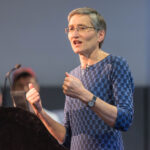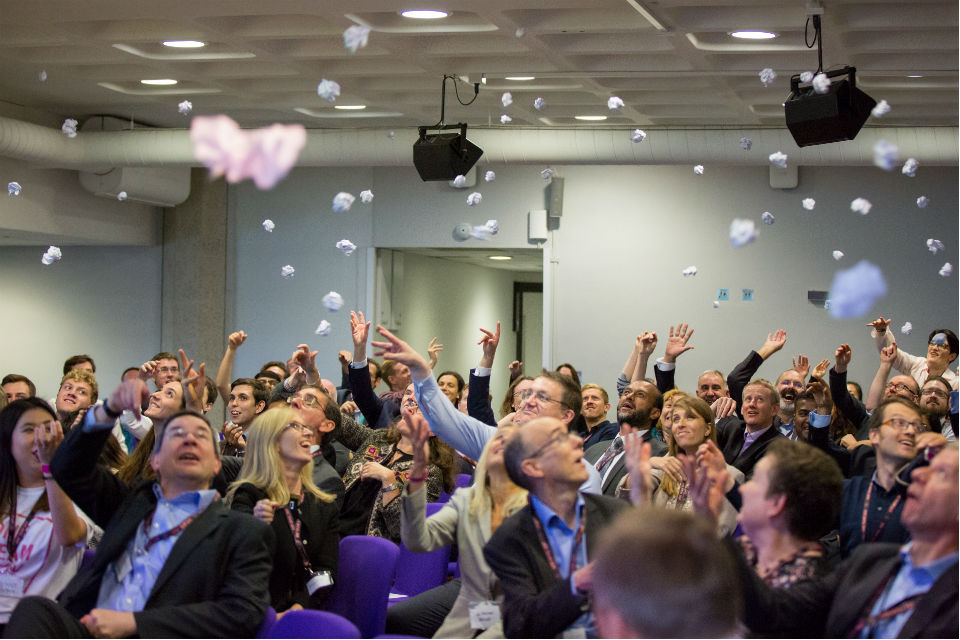
Back in March I blogged about my first experience of an ‘unconference’, an event where the agenda is determined on the day by the participants and run by them. Someone asked me then whether Civil Service leaders were ready to embrace unconferences. I said in my blog that I didn’t have an answer to that one yet.
Well, now I do. And the answer is a resounding ‘yes’.
Last month the Civil Service Leadership Academy and One Team Gov jointly organised a highly successful unconference for the Civil Service Leadership Group (CSLG), which is made up of Permanent Secretaries and Directors General from all government departments. The 200 participants were an even split of CSLG members and people from across the Civil Service who were invited via talent schemes, diversity networks and the One Team Government network.
The theme of ‘Reimagining Public Service’ really struck a chord. It’s a subject that we all care about and have an opinion on. The outline plan for the day allowed for a total of 32 sessions, and we could have filled the slots two or three times over with ideas from participants. Energy was high and there was lots of laughter as people pitched their session proposals. If the team masterminding the agenda felt deluged by ideas, they didn’t show it, and with some skilful grouping of topics, everyone’s proposals were incorporated.
Over the next few hours we talked about harnessing the benefits of artificial intelligence; creating inclusive workplaces; shaping services around life events; and making change happen. People shared their experiences of personal risk in leadership, and learning from mistakes. We wanted these to be discussions that lead to action, so each session generated a summary poster as a tangible output from the conversation.
At the end of the event, everyone wrote down something that they had learnt on a piece of paper and shared them in a ‘snowstorm’. Far from creating a mess on the floor, the paper snowballs were all uncrumpled and analysed to identify the themes in people’s learning – from connecting, sharing and being open, to prioritising wellbeing and promoting diversity.

There's always a risk that something described as ‘un-’ will seem like a gimmick. So I’m delighted that the most senior Civil Service leaders ‘leaned in’ to a different way of coming together to learn, share and generate ideas.
The big visible difference with an unconference is that you can't see the agenda in advance, but the active, democratic side is equally important. Getting away from ‘speakers’ and ‘listeners’ is very powerful and much more likely to get the best value out of the day. As someone said of regular conferences, ‘the sum of the expertise in the audience is greater than the sum of the expertise of the people on stage’, so why wouldn’t we want to harness all that expertise?
One of the most exciting aspects for me was the mix of people in the room, all there on equal terms – a real-life example of diversity and inclusion. Did it need an unconference to achieve that? In theory, no, but in practice it’s never happened before. So maybe the particular character of an unconference made it possible. In any event, this unconference was a milestone and one that I hope we can repeat. Huge thanks to the volunteers and all the participants for making it such a success.

1 comment
Comment by Mr R W Ebley posted on
In order that change is effectively undertaken all levels of government and other public funded organisations need to demonstrate good management
Independent management accreditation is required to achieve this
Thank you